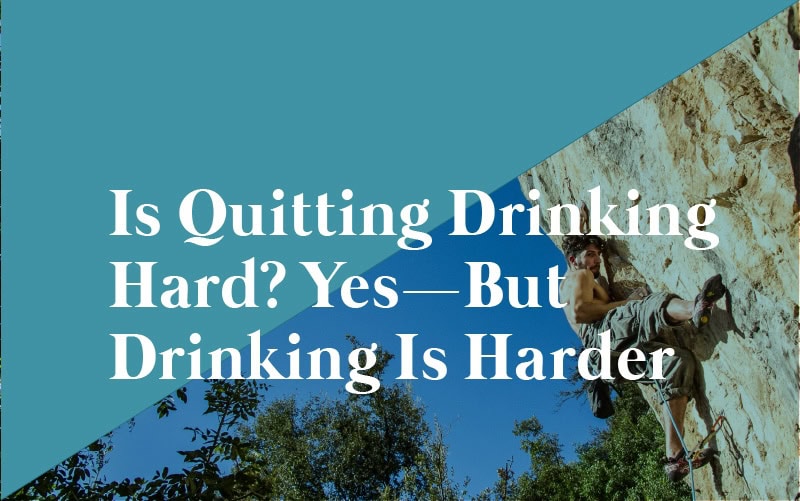Is Quitting Drinking Hard? Yes—But Drinking Is Harder
When faced with the question, “Is quitting drinking hard?” the honest answer is—yes, it can be. But if you have a problematic relationship with alcohol, the challenges of quitting pale in comparison to the difficulties of continuing down the path of self-destruction that drinking often leads to.
In this post, we’ll explore why quitting drinking can feel hard and why it’s even harder to keep drinking. Stick around to discover the brighter side of sobriety and the immense rewards that come with it.
Why Quitting Drinking Can Be Hard
- Physical Detox
When you stop drinking, your body needs to detoxify from alcohol. This process can be physically uncomfortable, especially in the first 72 hours. Symptoms like night sweats, brain fog, and stomach issues are common. In severe cases, quitting alcohol cold turkey can even be life-threatening. If you’re concerned, consult a healthcare provider before quitting. - Breaking Old Habits
Alcohol is often deeply ingrained in daily routines. Letting go of these patterns and forming new habits takes effort and time. For example, if your typical “witching hour” is 5–6 PM, you might need to find a new activity, like hitting the gym or joining a pickleball league. - Lack of a Support System
Starting an alcohol-free journey can feel isolating, especially if your social circle revolves around drinking. Online sobriety communities and peer support groups can help you build essential connections for long-term success. - A World Built Around Alcohol
From social events to advertisements, alcohol is everywhere. Living in a “drunk world” makes it harder to escape its influence, especially in the early days of sobriety. - Facing Boredom
Many of us have been conditioned to avoid boredom at all costs. However, boredom is a natural and even healthy state. Learning to sit with it instead of escaping into drinking can be an adjustment.
Why Continuing to Drink Is Even Harder
While quitting drinking has its challenges, continuing to drink when you have a problem is exponentially harder. Here’s why:
- Alcoholism Progresses
Alcohol problems don’t resolve themselves; they get worse over time. Continuing to drink leads to physical, emotional, and relational destruction. This is what some call a “slow suicide.” - Emotional and Physical Toll
The stress of trying to manage drinking—apologizing for drunken behavior, covering up mistakes, and dealing with hangovers—is exhausting. Living with addiction means carrying a heavier burden each day. - Impact on Loved Ones
Drinking doesn’t just affect you; it affects everyone around you. Addiction erodes relationships and can create lasting pain for those you care about.
Why Sobriety Is Worth It
Here’s the good news: once you move past the initial hurdles, sobriety brings rewards that far outweigh the challenges.
- Physical and Mental Clarity
After 14–21 days, the fog begins to lift. You’ll feel more energized and present, as if waking up after years of sleepwalking. - Self-Care at Its Best
Quitting drinking is an act of radical self-love. It feels good to prioritize your well-being and treat yourself with kindness. - A Calmer, More Stable Life
No more waking up to check embarrassing texts or struggling through work with a hangover. Your mornings become brighter, your finances improve, and life feels more manageable. - Rebalanced Dopamine Levels
Alcohol creates an unhealthy dopamine imbalance, giving short bursts of pleasure followed by long stretches of discomfort. Sobriety allows your brain to rebalance naturally, leading to sustainable happiness without the harsh trade-offs. - Living Life at Face Value
Without alcohol, you experience life as it is—raw, real, and beautiful. This authenticity allows you to build a life that doesn’t require escape or numbing.
Final Thoughts
Yes, quitting drinking can be hard. But continuing to drink when alcohol has become a problem is far harder. Sobriety offers a chance to reclaim your life, find lasting joy, and be the best version of yourself—for you and those around you.
The journey to an alcohol-free life is worth every step. The question is: Which hard will you choose?
Are you ready to paddle downstream and embrace the magic of sobriety? Let us know in the comments!
🎧 For more on this topic, check out Episode 476 of the Recovery Elevator podcast, hosted by Paul Churchill.



